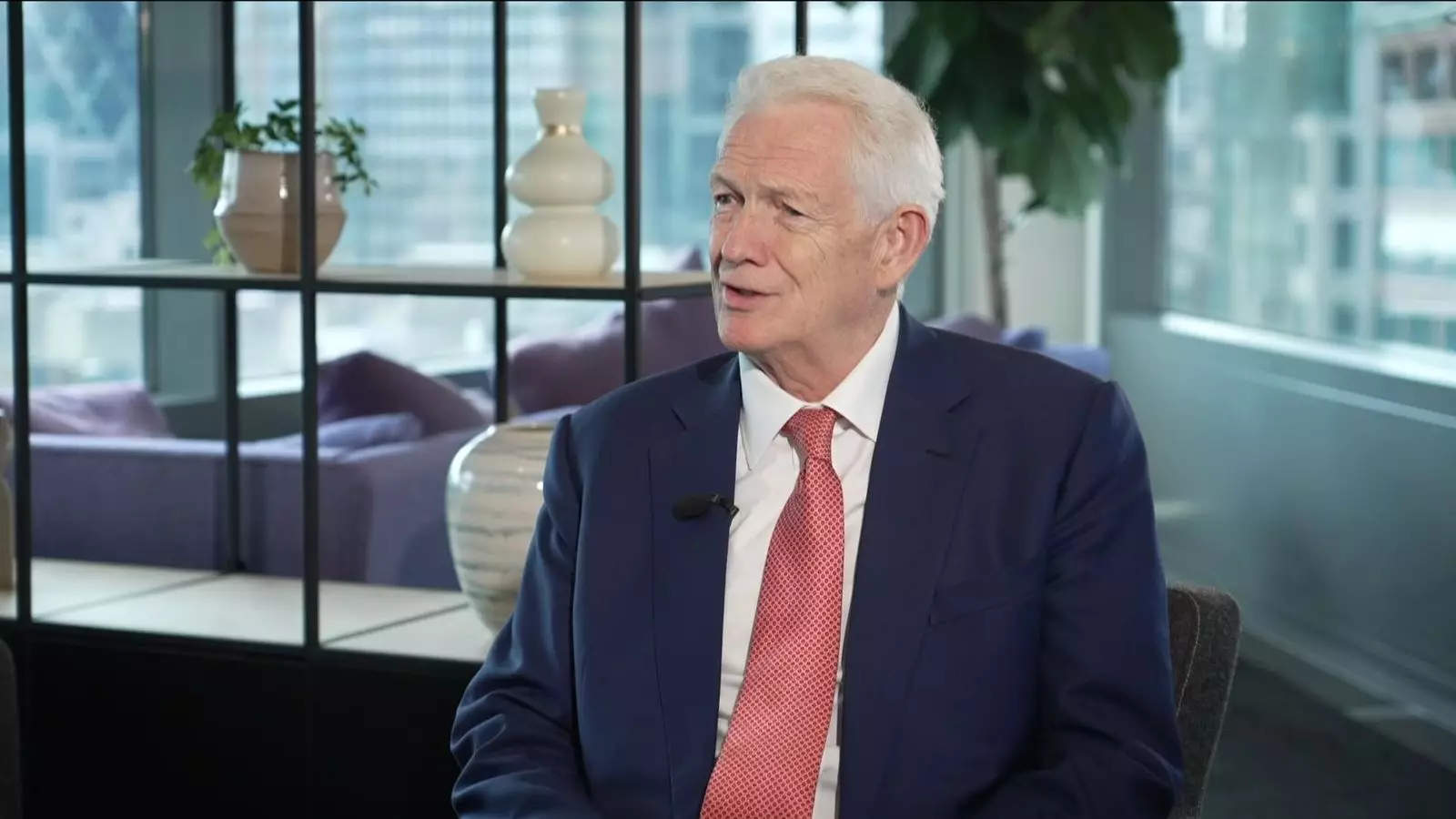As the remnants of the catastrophic 2008 financial crisis fade into the backdrop of British economic history, it seems a bitter taste still lingers on the lips of many citizens. Rick Haythornthwaite, the Chairman of NatWest, has expressed gratitude towards British taxpayers for their crucial role in rescuing the bank during its darkest days. However, this gratitude feels more like a polite nod than a heartfelt acknowledgment of the very real costs borne by the public. While Haythornthwaite insists that the bank hasn’t forgotten its past, sentiments expressed in the public arena indicate that mere words are insufficient; accountability and systemic change are desperately needed.
In the wake of the government selling its final stake in the once-struggling entity—previously known as the Royal Bank of Scotland—there’s much to reflect upon. The staggering £46 billion bailout that allowed NatWest to rise from the ashes indeed fulfilled a critical function: it safeguarded millions of savers and businesses. Nevertheless, the accompanying loss of taxpayer funds—exceeding £10 billion—leaves a sour note. Are we genuinely supposed to feel comforted knowing that our money was utilized to restore a bank’s health?
The Crisis Response: Lessons or Casual Acknowledgments?
Haythornthwaite, while commending the regulatory reforms enacted post-crisis, raises eyebrows by hinting that the “pendulum may have swung too far.” Advocating for changes to those very safeguards—necessary measures introduced in the aftermath of excessive risk-taking in the City—challenges the integrity of those lessons that were supposed to have been learned. By implying that current regulations hinder growth, there seems to be a troubling inclination to prioritize profit over principles, especially when recent history clearly illustrates the consequences of unbridled capitalism.
Furthermore, discussions surrounding the loosening of regulations may conflict with the sentiment of gratitude that Haythornthwaite professes. If the culture of empathy and accountability has truly taken root, why are we now contemplating a shift back towards the risk-laden practices of yore? The idea of eradication for key guidelines—such as ring-fencing banking activities—is both alarmingly cavalier and a signal that we may be on the precipice of repeating past mistakes, disregarding essential safeguards that protect the public and bolster trust in financial institutions.
The Chancellor’s Open Mind: A Treacherous Avenue
Chancellor Rachel Reeves’ willingness to entertain changes to the post-2009 frameworks, including the bonus cap and ring-fencing, is a precarious distraction as the nation grapples with a plethora of pressing issues. It is, of course, prudent to consider the effectiveness of regulations; however, in this dialogue, the question arises: At what cost? Are we truly seeking growth, or have we merely entered into another dialogue that favors corporate interests over the very society that sustained them?
Haythornthwaite talks of a “very different place” regarding banking ethics, yet this assertion begs scrutiny. The dedication to ethics becomes tenuous when intertwined with financial gain. Pushing for deregulation whilst clinging to the rhetoric of ethics presents a paradoxical stance that raises legitimate fears among the populace. Trust is fragile, easily shattered by the very institutions claiming commitment to the public good. Skepticism surrounding the motivations behind this newfound advocacy for change is only exacerbated by the memories of financial devastation which still resonate in public consciousness.
A Call for Authentic Ownership
The acknowledgment that the government-backed bailout was more than a financial safety net—it was a safeguard for the collective trust of everyday people—carries a weight that Haythornthwaite seems to recognize, albeit superficially. A generation of taxpayers should not merely be thanked post-factum. Rather, there should be a proactive movement towards shared accountability that engages citizens, rather than treating them as mere enablers of corporate recovery.
As NatWest takes strides toward newfound autonomy, the narrative must shift from passive gratitude towards active engagement with the public. Regaining trust means embodying a banking culture that genuinely values the customer experience, prioritizes ethical standards, and ensures that a probable crisis is not merely managed through taxpayer-funded interventions. The veneer of gratitude cannot suffice; true transformation demands substantive, concerted efforts that honor and reflect the lessons of history while genuinely serving public interest. The legacy of 2008 should not merely be a chapter in the past but a touchstone guiding our collective future.


Leave a Reply